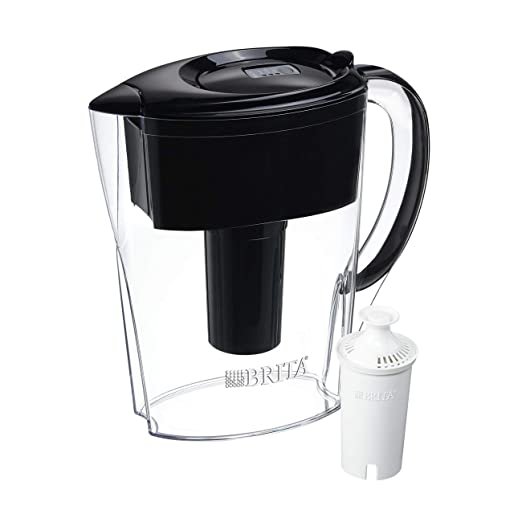How do Brita filters work, anyway? Brita filters have gained popularity for their effectiveness and ease of use. In this guide, we'll delve into what Brita filters are, why water filtration is important, alternatives to Brita filters, and how to obtain filters and services from reputable providers like Watersmart.
2. When is water filtration desirable and what problems does it solve?
3. Alternatives to Brita filters and other water filtration options
Water filtration is a crucial step towards ensuring access to clean and safe drinking water. By choosing WaterSmart, you can enjoy the benefits of reliable filtration solutions tailored to your needs. Find out how.
Water Filter Explanation
1. how do Brita filters work?
Brita filters are innovative water filtration systems designed to enhance the quality and taste of tap water.
They utilize a combination of physical and chemical processes to remove impurities, contaminants, and undesirable substances from water.
Filtration Mechanism:
Activated Carbon: One of the key components of Brita filters is activated carbon, a highly porous material derived from natural sources like coconut shells or coal. This carbon has a large surface area with countless microscopic pores, making it effective in adsorbing (not absorbing) impurities.
Adsorption Process: When water passes through the activated carbon filter, contaminants such as chlorine, sediment, lead, pesticides, and organic compounds adhere to the carbon surface. This process, known as adsorption, traps pollutants and prevents them from passing through, resulting in cleaner and safer water.
Improving Taste and Odor: In addition to removing impurities, Brita filters also improve the taste and odour of water. Chlorine, commonly used in municipal water treatment, can impart a strong taste and smell to tap water. The activated carbon in Brita filters absorbs chlorine and its by-products, leading to fresher-tasting and odour-free water.
Particle Filtration: Along with chemical contaminants, Brita filters also capture larger particles like sediment and rust that may be present in the water supply. This helps prevent these particles from reaching your glass or water bottle, ensuring a visually clear and aesthetically pleasing drinking experience.
Ion Exchange Resin: Some Brita filters incorporate ion exchange resin along with activated carbon. This resin is effective in reducing limescale buildup by exchanging calcium and magnesium ions with sodium ions, thereby softening water and reducing the formation of mineral deposits in appliances like kettles and coffee makers.
Regular maintenance is essential to ensure the optimal performance of Brita filters. This includes replacing the filter cartridge as recommended by the manufacturer (usually every 2-3 months or after filtering a certain volume of water), cleaning the filtration system periodically, and following proper storage practices to prevent bacterial growth.
Brita filters enhance the quality and taste of tap water.
2. When is water filtration desirable and what problems does it solve?
Water filtration is desirable in various situations, such as:
Improving Taste and Odor: Filtration enhances the taste and odour of water by removing chemicals and pollutants.
Removing Harmful Substances: It eliminates harmful substances like lead, mercury, and bacteria, making water safer to drink.
Protecting Appliances: Filtration can prolong the lifespan of appliances like coffee makers and kettles by reducing scale buildup.
Health Benefits: Clean water promotes better health by reducing exposure to contaminants that may cause health issues.
Safety concerns related to water quality include the presence of pathogens, heavy metals, and chemicals, which can lead to health problems if consumed regularly.
Water filtration helps address these concerns by providing a reliable method to purify drinking water.
3. Alternatives to Brita filters and other water filtration options
While Brita filters are popular, several alternatives offer similar or enhanced filtration capabilities:
Reverse Osmosis Systems: These systems use a semipermeable membrane to remove contaminants, including dissolved salts and minerals.
UV Water Purifiers: UV light is used to kill bacteria, viruses, and other microorganisms present in water.
Whole House Filtration: These systems filter water at the point of entry into the house, providing clean water for various uses.
Faucet-Mounted Filters: Similar to Brita filters, these attach directly to the faucet and provide on-demand filtration.
Choosing the right filtration system depends on factors like water quality, budget, and specific filtration needs.
Getting filters and service from Watersmart
WaterSmart is a reputable company known for its water filtration products and services. To obtain filters and services:
Consultation: Contact WaterSmart for a consultation to assess your water quality and filtration requirements.
Installation: Upon choosing a suitable filter, WaterSmart will install it professionally, ensuring optimal performance.
Maintenance: WaterSmart offers maintenance services to keep your filtration system running efficiently, including filter replacements and troubleshooting.
Expectations for a new installation include improved water quality, enhanced taste, and peace of mind knowing that your water is safe and clean for consumption.
“I get my bottled water here and have never had a problem. Always greeted with a smile and lent a hand carrying out the water.”




